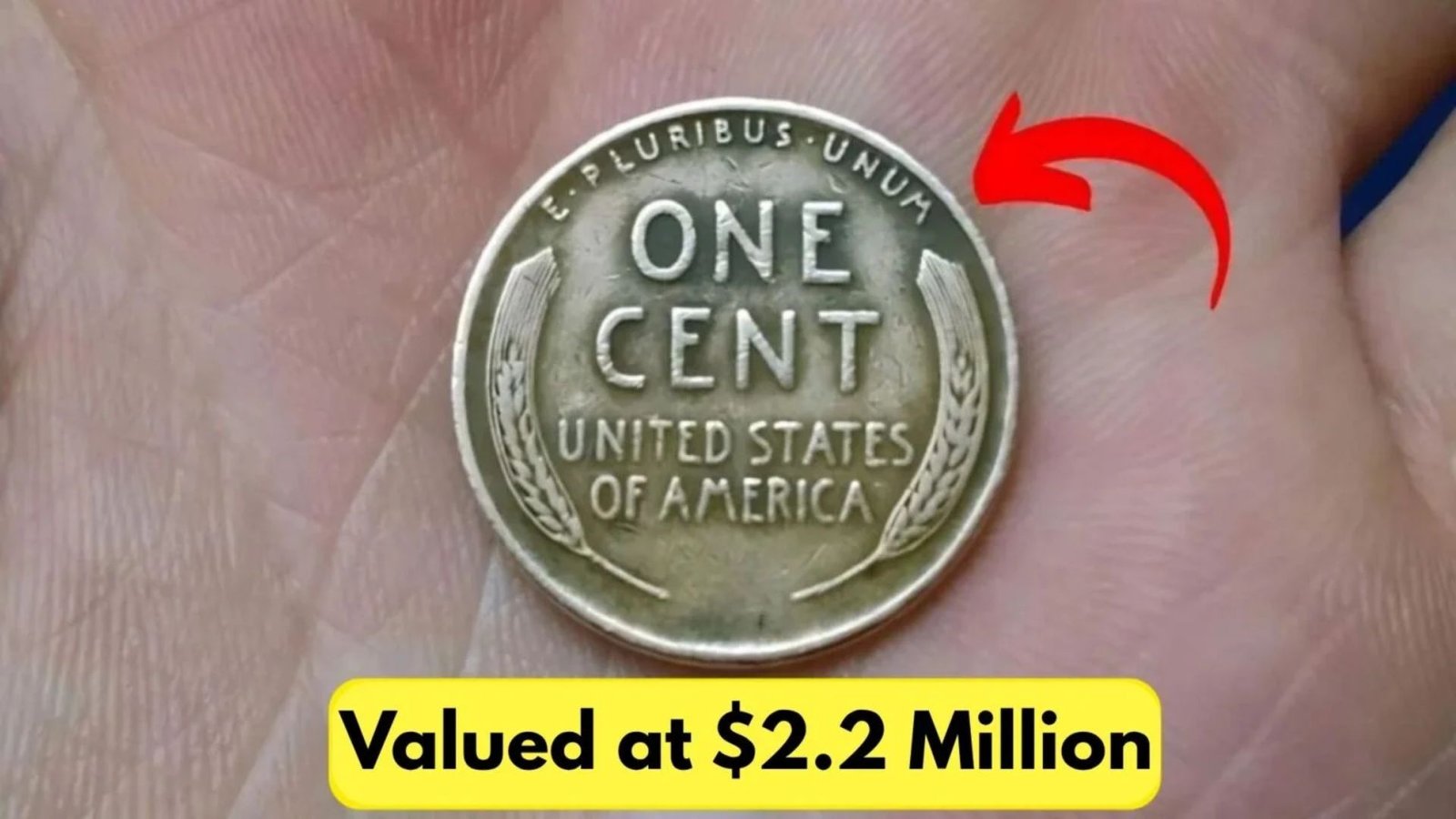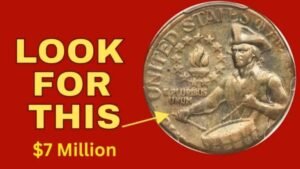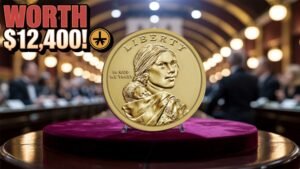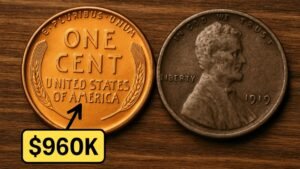Imagine digging through your couch cushions for spare change and pulling out a tiny copper coin that could buy you a mansion. That’s the wild allure of rare coins like the Lincoln Wheat Penny. This little piece of history from 1943 might just be the ultimate numismatics jackpot. Stick around as we uncover its story, value, and how you could spot one yourself – who knows, it might be in your pocket right now!
What is the Lincoln Wheat Penny?
The Lincoln Wheat Penny is an iconic U.S. coin minted from 1909 to 1958. It features President Abraham Lincoln on the front and two wheat stalks on the back – hence the “Wheat” nickname. Designed by Victor David Brenner, it’s a staple for coin collectors. But not all are equal; some errors turn everyday pocket change into rare coins worth a fortune.
The Fascinating History of the 1943 Copper Penny
World War II changed everything, including pennies. To save copper for the war effort, the U.S. Mint switched to zinc-coated steel in 1943. But a handful of bronze planchets slipped in, creating accidental copper strikes. Only about 20 Philadelphia versions are known, with even fewer from Denver and San Francisco. These flubs birthed one of numismatics’ greatest legends.
Why This Rare Coin Commands Millions Today
In today’s market, rarity drives value. The 1943 copper Lincoln Wheat Penny isn’t just old – it’s a minting mistake frozen in time. With global interest in rare coins surging, auction prices skyrocket. A pristine example could fund your dreams, blending history with high-stakes collecting.
Hunt for Treasure: How to Engage with Lincoln Wheat Pennies
You don’t need a vault to start. Check your change for wheat designs – they’re pre-1959. Join online forums or local coin clubs to trade and learn. Apps like CoinSnap help identify potentials fast. Whether you’re a hobbyist or newbie, hunting boosts the thrill of numismatics without breaking the bank.
| Common Lincoln Wheat Penny Values | Mint Year | Condition | Approx. Value |
|---|---|---|---|
| 1909 (Philadelphia) | Standard | Circulated | $1–$5 |
| 1914-D | Common | Circulated | $150–$300 |
| 1958 (Philadelphia) | Common | Uncirculated | $0.25–$1 |
Notable Facts and Auction Records
Did you know only one 1943-D copper penny exists? It smashed records at $1.7 million in 2010. Today, top specimens hit $2.3 million. Fewer than 40 total 1943 coppers are authenticated, making each a numismatics unicorn.
| 1943 Copper Penny Auction Highlights | Mint | Sale Year | Price |
|---|---|---|---|
| Philadelphia | 1943 | 2022 | $840,000 |
| San Francisco | 1943-S | 2016 | $1.18M |
| Denver (Rarest) | 1943-D | 2010 | $1.7M |
Expert Tips for Aspiring Numismatists
Start small: Buy a Whitman folder to organize your Lincoln Wheat Pennies. Always get rare coins graded by PCGS or NGC for authenticity. Attend shows for deals, and remember – condition is king. Dive into books like “A Guide Book of Lincoln Cents” for deeper insights.
Frequently Asked Questions
Is the 1943 copper penny still in circulation?
Possibly! A few might lurk in old jars, but most are in collections.
How do I know if my Lincoln Wheat Penny is valuable?
Look for errors like doubled dies or off-metal strikes. Use a magnifying glass and consult experts.
What’s the most expensive Wheat Penny ever sold?
The 1943-D at $1.7 million, with estimates now over $2 million.
Conclusion
In the world of rare coins, the Lincoln Wheat Penny reminds us history hides in plain sight. Whether you’re chasing that $2.3 million dream or just enjoying the hunt, numismatics sparks joy and surprise. Grab your magnifier, share your finds in the comments, and explore more on valuable pennies – your next treasure awaits!




